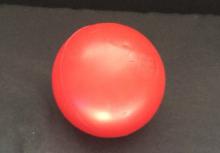After students with CVI (Cortical Visual Impairment) have learned to view and identify real objects, they are ready to learn to identify two-dimensional pictures. It is essential to recognize the differences in a student’s visual skill set before...
All
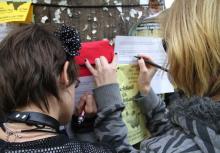
Posted by Marnee Loftin
Determining the presence of a specific learning disability is a complex process. Most parents and Teachers of Students with Visual Impairments (TVIs) have a general idea of the procedure, but it is important to know several things about the process...
Posted by Liamsmom
My son Liam is a first grader in a mainstream classroom and he happens to be deafblind. I was inspired recently by a classroom letter that was sent home in his backpack. The children were expected to write stories that had a beginning, middle,...
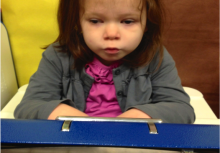
Posted by Laurie Hudson
THE BIG PICTURE
In my iBook “Introducing Braille,” I largely used videotaped examples of bright, enthusiastic young students to show ways to “Make It Fun,” “Make it Developmental,” and “Make It Meaningful...
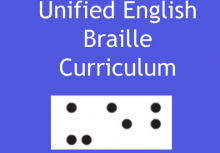
Posted by Catherine Summ
Catherine Summ and Suzanne Cappiello, who both work as Education Consultants for the Department of Rehabilitative Services (DORS-BESB) in CT, have created this curriculum.
We wrote these lesson plans...
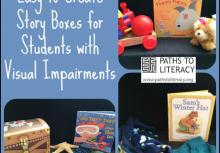
Posted by Jaime Brown
Story boxes have been around for years. When I taught Head Start they were called "prop boxes". As a Head Start teacher, I used my prop boxes to make the story more fun, engaging and interactive. When I became a TVI I realized that story...
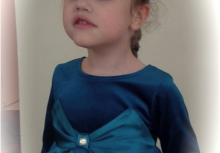
Posted by Laurie Hudson
How do we introduce braille literacy through assistive technology for young children with visual impairments? We make it fun, developmental, and meaningful, as described in the lesson segment below and paired with a short video. (Many thanks to my...
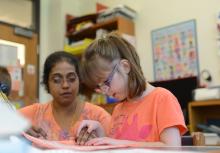
Posted by Liz Eagan
I have been asked repeatedly how I come up with goals and how I document progress or regression on them. Good questions! In coming up with goals, it all starts with some form of assessment. I don’t pull goals out of midair. Texas School for the Blind...
Posted by Marnee Loftin
Jonathan has been receiving educational services since the age of thirteen months. His family has been an active participant in this process always ensuring that Jonathan has been surrounded by braille in his home and with books available for reading...
Posted by Jaime Brown
Typically when we think of pre-literacy activities, we think of increasing tactual and print awareness, object and letter identification, and book handling skills. Learning literacy skills begins even before students learn to recognize and identify...
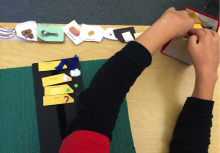
Posted by Megan Mogan
Whether you are raring to go and have your materials all organized, or your vacation flight arrives home the night before your first day back, it’s time. Here are just a few things I like to remind myself this back-to-school time of year. ...
Posted by Liamsmom
My son Liam, who is deafblind, will be starting first grade in a couple of weeks in a mainstream classroom. Last year, I bought all of Liam's supplies and labeled them myself. This year I wanted Liam to be part of the process. And of course I wanted...
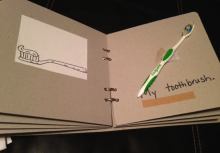
Posted by Liamsmom
My son Liam attends a mainstream public school. He just finished Kindergarten last year, where he would get these little mini-books that his classmates were reading. I have taken some of them and modified them so that they would be accessible for Liam, as...
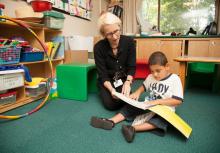
Posted by Gwyn McCormack
Sighted children develop and gain knowledge and experience through incidental learning. During their first few years of life they have exposure to a vast range of visual symbols that convey meaning. They observe children and adults looking atprint and gaining...
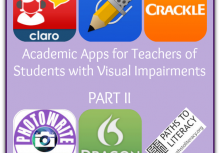
Posted by Linda Mamer
New apps (applications) for iOS devices are frequently released, and the following is list compiled of the apps which were most highly rated by students who are blind or visually impaired. Many of these help to support various areas of the Expanded...
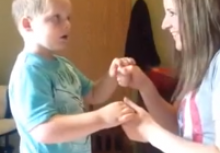
Posted by Liamsmom
There are many reasons I tell stories to my child, Liam, who is deafblind. Storytelling is fun and motivating; stories can open up a whole new world to children in general, but especially to children who are deafblind. Storytelling can encourage conversation...
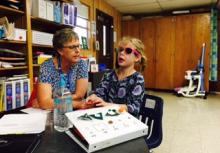
Posted by Marnee Loftin
Marnee Loftin is a psychologist, who recently retired from Texas School for the Blind and Visually Impaired. She is the author of Making Evaluations Meaningful and has presented widely about learning disabilities in students with visual...
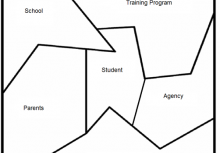
Posted by Liz Eagan
According to Webster’s Dictionary, the word collaborate means “to work with another person or group in order to achieve or do something”. The student with a visual impairment has many needs that can be best met through collaborating...
Posted by Liamsmom
I wanted to create some "science" books for my son Liam (he just turned 6 years old and is deafblind) for him to use for the next school year. I looked up first grade standards and noticed a focus on animals and their habitats, life cycles,...
Posted by Roz Rowley
Mary McCarthy and Justine Rines are co-authors of this post.
This is the third of three posts on the Wilson Reading System® and Struggling Braille Readers. See also Why We Love Using the Wilson Reading System® with Struggling Braille Readers...

